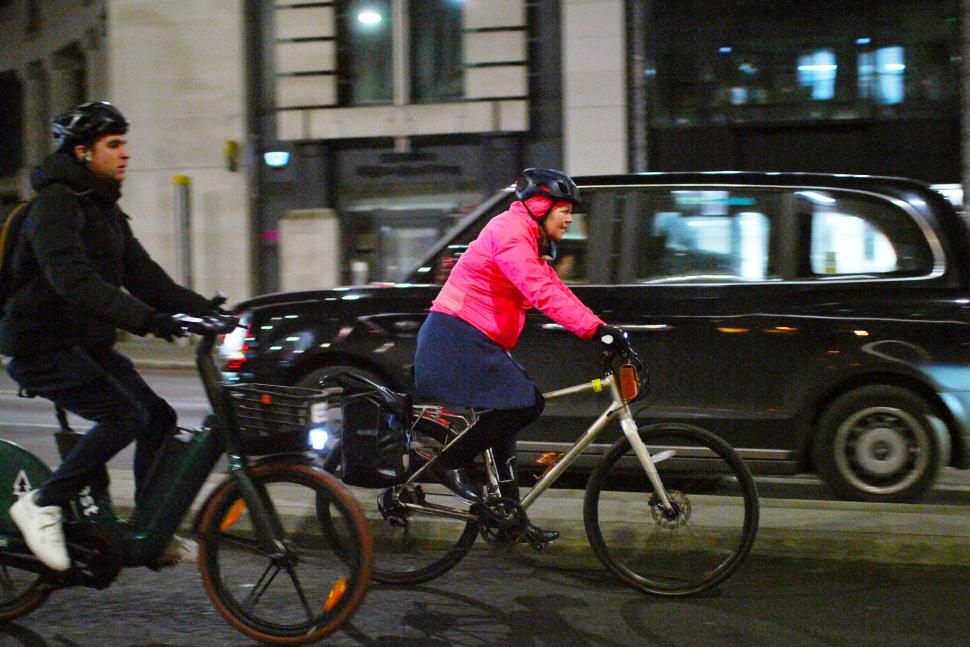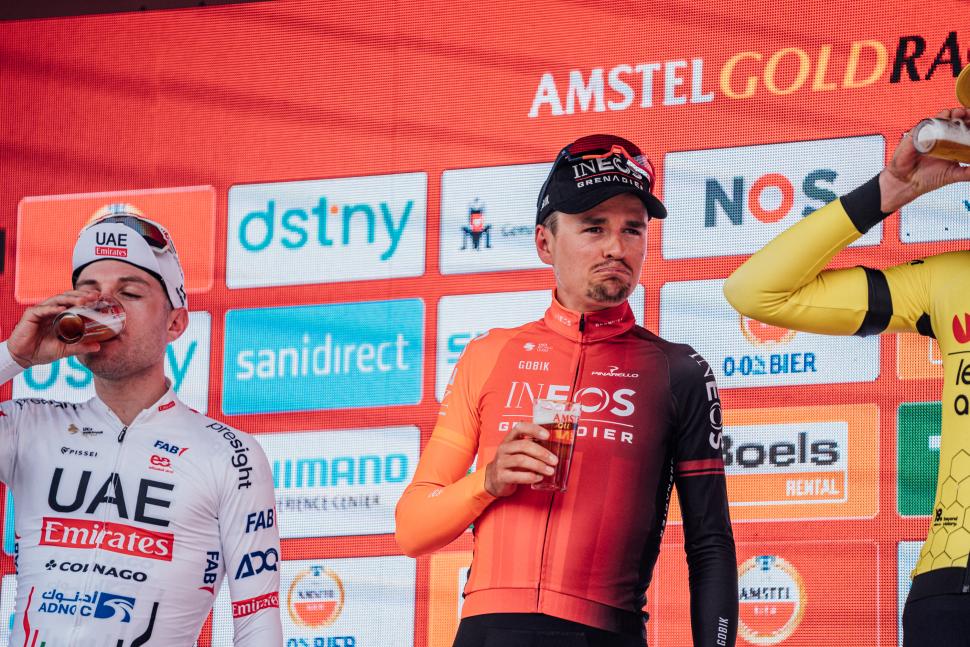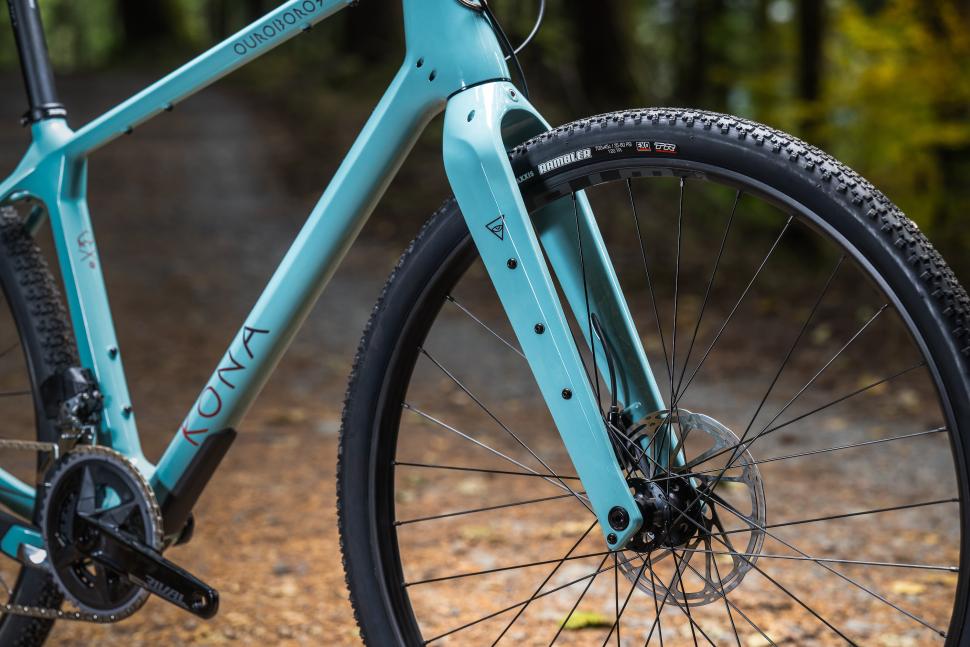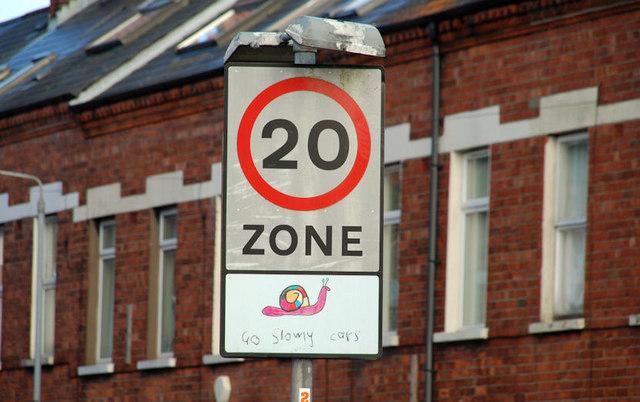- News
- Reviews
- Bikes
- Accessories
- Accessories - misc
- Computer mounts
- Bags
- Bar ends
- Bike bags & cases
- Bottle cages
- Bottles
- Cameras
- Car racks
- Child seats
- Computers
- Glasses
- GPS units
- Helmets
- Lights - front
- Lights - rear
- Lights - sets
- Locks
- Mirrors
- Mudguards
- Racks
- Pumps & CO2 inflators
- Puncture kits
- Reflectives
- Smart watches
- Stands and racks
- Trailers
- Clothing
- Components
- Bar tape & grips
- Bottom brackets
- Brake & gear cables
- Brake & STI levers
- Brake pads & spares
- Brakes
- Cassettes & freewheels
- Chains
- Chainsets & chainrings
- Derailleurs - front
- Derailleurs - rear
- Forks
- Gear levers & shifters
- Groupsets
- Handlebars & extensions
- Headsets
- Hubs
- Inner tubes
- Pedals
- Quick releases & skewers
- Saddles
- Seatposts
- Stems
- Wheels
- Tyres
- Health, fitness and nutrition
- Tools and workshop
- Miscellaneous
- Tubeless valves
- Buyers Guides
- Features
- Forum
- Recommends
- Podcast
news
BBC under fire over programme about "how best to share" the roads, titled... "Should cyclists stay in their lane?"; Cycling campaigns urge government to "hold their nerve" on 20mph speed limits + more on the live blog
SUMMARY
No Live Blog item found.
 Cyclists in London male and female in cycle lane - copyright Simon MacMichael
Cyclists in London male and female in cycle lane - copyright Simon MacMichael19 April 2024, 09:06
BBC under fire over programme about "how best to share" the roads, titled... "Should cyclists stay in their lane?"
At 12pm on BBC Radio 4 is the latest episode of 'AntiSocial' with Adam Fleming, a show that is self-professed "peace talks for the culture wars".
"In an era of polarisation, propaganda and pile-ons, Adam Fleming helps you work out what the arguments are really about," the BBC's website promo explains. Today, the topic is — yep, you guessed it — cyclists, a producer for the show suggesting it will be about "the debate between cyclists and motorists on how best to share" the roads. So, what is this "peace talks for the culture wars" episode called then? Erm... *checks and double checks notes*... "Should cyclists stay in their lane?"
In more detail, the episode description adds: "Cyclists shaming drivers online, fights over bike lanes, and the politics of pedal power.
"TV and radio presenter Jeremy Vine posts a video of a car failing to give way to him while he's riding a penny farthing. Cue angry comments hurling insults and telling him he'd be safer in a car — and sympathetic responses from fellow cyclists. What does the Highway Code actually say about priorities on the roads? What are the stats on cyclists and safety? And how and why has cycling become such a toxic topic?"
Unsurprisingly, the title of the episode has raised some eyebrows this morning (as has the producer's numerous messages to a wide array of potential guests, from anonymous anti-LTN (low-traffic neighbourhood) social media accounts to newspaper columnists responsible for such an award-worthy anti-cycling bingo full house as the one below...)
Earlier this week, we accepted an invitation to go on the show, an invitation that has since gone cold. But don't fear, live blog readers, thankfully, we were promised the show aims to take a step back to explore the facts, the context, and the differing views in detail, all in the hope of cooling things down, and is the opposite of the shout-y slanging matches often seen elsewhere during cycling discussions. We've got high hopes...
In fairness, during the social media dissection of the title, the Richmond coordinator for the London Cycling Campaign, Tim Lennon, said he's listened to the show before and it does tend to be a "pointing out the actual facts, rather than just being a two sides thing", so who knows? Maybe we will all be quite impressed come 1pm.
For now however, much of the online discussion is about the episode name, The Ranty Highwayman calling it "unhealthy" and "the type of show that gets people hurt on the roads".
Not just Charlotte, he's also reached out to well known anti ltner thefox. Just the title alone shows there's zero attempt at proper reporting around this. pic.twitter.com/1kv4VcePNb
— CykelTony (@tony_eh) April 19, 2024
We've been here before with cycling coverage on the BBC and how it's communicated with a title. Back in November 2022, Panorama aired an episode, which despite doing a good job of showing just how vulnerable people riding bikes can be, was called "Road Rage: Cars v Bikes", something the presenter we spoke to at-length during and after filming explained was a decision out of their hands, made pre-broadcast.
Some of that TV offering was actually solid enough, so maybe we'll be back in the same position later today with "Should cyclists stay in their lane?". Either way, from what we've seen people saying online, hopes aren't high.
19 April 2024, 12:03
Reaction to BBC Radio 4 AntiSocial... "Should cyclists stay in their lane?"
For those of you who weren't able to tune in, BBC Radio 4's AntiSocial episode looking at cycling (and questionably titled "Should cyclists stay in their lane?") at least delivered on its promise to avoid being a slanging match, the at-length format and calm discussion instantly improving the usual 'five-minute no holds barred shouting contest' for cycling-related discussions on TV or radio.
Lauren O'Brien represented the cycling side of the discussion, earning praise from those who listened for her patient explanations about why a cyclist might not use a cycle lane, how cycling could be made safer and various other topics. One listener concluding she "pretty much had a monopoly on being reasonable in that discussion".
The show also heard from James Woudhuysen, a journalist and visiting professor at London South Bank University. Among other things, he urged for greater Highway Code knowledge and viewing all road users in a more humanising way, rather than through respective transport tribes. Admittedly, those points came around plenty of unchallenged "war on the motorist" claims, an assertion that "snooping" camera cyclists are "very dangerous for the whole fabric of society", comments about empty cycle lanes, and a bizarre anecdote about having "nearly been run over by lots of women in very tight Lycra [... but] nobody complains about their testosterone".
That last one earned pushback from host Adam Fleming about why what they were wearing is relevant. Again, in fairness, Fleming was quick to question some of the claims made and the show was interspersed with a lawyer explaining the 2022 changes to the Highway Code, an academic giving a history of cycling in Britain, and stats from a producer. There was certainly far more work and research than your standard Good Morning Britain or Talk TV cycling segment that we're all too familiar with by now, but did it go far enough? Here's some of the early reaction...
I thought you did very well and was disappointed that your debating partner was allowed to get away with generalisations, straw man arguments and untruths without challenge.
I think if @adamfleming wants to have these type of people on he should be prepared to challenge them.— Cllr Liam Calvert 💚 (@LiamCalvert) April 19, 2024
noblecyclist: "Please challenge this guy when he mentions the fictitious 'war on cars'. There is no war on cars."
> 'The War on the Motorist' deconstructed — looking at the truth behind the myths
Plenty of discussion around the multiple minutes spent questioning why cyclists might not use a cycle lane...
Ian Cumming: "Why might I not be in a cycle lane? It may be strewn with litter, obstacles, or busy with slower cyclists and/or pedestrians. Given that I ride at 20-30mph and sometimes faster — the road seems like the safest and most considerate place for me to be."
#BBCAntisocial @adamfleming
Why don't cyclists use cycle lanes? pic.twitter.com/zXWDEwuDXr— Drew (@drewsnx) April 19, 2024
Not great feedback for guest selection (although we're yet to see a complaint about one of the guests... no prizes for guessing)
Chris Whear: "Who is the guy, James? He is arrogant and biased. As a driver of over 50 years the last 10 have seen terrible driving standards and rage from car drivers (and some other groups) towards all road users. If he doesn't see that they [cyclists] are vulnerable there's no hope!!"
#bbcAntisocial
This man is ridiculous.— Bjbrightwell (@bjbrightwell) April 19, 2024
And before I forget, a bit more reaction to that title, cycling campaigner Ruth Mayorcas calling it "utterly disgraceful".
"Every day my life is at risk from drivers who simply do not understand cycling as utility/modus operandi — and this simply compounds it," she said. "Why don't you get some lived experience @simontulett (one of the show's producers) and come cycle with me?"
Anyone get a chance to listen in? What were your thoughts? Better than the usual 'broadcast media does cycling' fare, but what did you think? The full episode is available here...
19 April 2024, 15:58
Happy Friday!
It's the weekend...
19 April 2024, 15:48
Bianchi presents the cycling world an "unprecedented experience"... to view a holographic Specialissima RC model with Apple Vision Pro headset
We're sensing a good ol' caption contest...
As part of Milan Design Week, Bianchi has offered the cycling world (or those in striking distance of the Italian city, at least) an "unprecedented experience" to view its Specialissima RC road bike in holgraphic form through the power of the Apple Vision Pro headset.
Bianchi says it allows viewers to see a visualisation of the complete bicycle in 3D, "even exploding into its components set in the physical space where the visitor is located". On a completely tangental non-cycling point, if anyone fancies a Friday laugh, look up that time Ronnie O'Sullivan tried to play virtual reality pool with a headset like that. You can't lean on the table, Ronnie, it doesn't exist. Anyway, back to cycling...
"Bianchi's vision is constantly focused on the future and seeks to integrate the most innovative technologies," explained Claudio Masnata, marketing and communications manager at Bianchi. "Thanks to the collaboration with Zampediverse in this experiment, we can reduce the boundary between physical and digital spaces by offering an experience that didn't exist before and by laying the groundwork for new product presentation methods."
19 April 2024, 14:05
You're completing an indoor trainer session when... thousands of football fans spot your efforts...
Excellent pic.twitter.com/iTmW3rQbgL
— Nooruddean (@BeardedGenius) April 19, 2024
19 April 2024, 13:41
"This is one of the very worst storylines Neighbours has ever run": Australian soap horrifies viewers with cyclist "serial pooper" plot
On to the day's biggest news story. Neighbours, the Australian soap which returned to screens last year, has horrified its viewers with an ongoing plot about a man who can't control his bowels when cycling. I hope you've finished your lunch...
Could Karl really be the serial pooper? 💩 pic.twitter.com/8ikQ5bYnfe
— Neighbours (@neighbours) April 18, 2024
Apparently the plot is inspired by the real-life "poo jogger" case that News.com.au claims gripped the country in 2018. Anyway, apparently someone is covering the lawns of Erinsborough and the community is shocked. Someone on the writing team's surely just a huge pro cycling fan, right?
The plot hasn't gone down well with Neighbours fans, the show inundated with comments about it being "disgusting".
"This is one of the very worst storylines Neighbours has ever run. Just disgusting," one said.
"This was funny the first time, but just gross now, as a Dr he would know the health implications of doing this in public places," another said.
19 April 2024, 12:46
Hit-and-run driver without licence who left cyclist with multiple injuries jailed for a year and disqualified from driving for four years
The cyclist suffered multiple fractures and other injuries, and died nine months after he was hit by the driver who already had six previous convictions for 16 offences. Read more...
19 April 2024, 10:58
QOM (Queen of the Maternity Ward)
thinking about this woman who recorded this as a workout on strava pic.twitter.com/i0Z2bjVI3C
— “paula” (@paularambles) April 19, 2024
19 April 2024, 10:35
Kona Bicycle's parent company appoints new CFO amidst fears of "cost-cutting measures" after brand pulled out of major cycle show at last minute
The topic of yesterday's company "town hall" meeting remains unknown...
19 April 2024, 10:12
"They were very happy with that": Tom Boonen bribed Qatari customs agents with nude magazines
A bizarre story next. Classics legend Tom Boonen has revealed how at the 2004 Tour of Qatar he got into (and out of) trouble due to some nude magazines at the airport. Speaking to Sporza's Wielerclub Wattage podcast, Boonen explained that due to dodgy hotel internet, he and his teammates often bought magazines of a certain genre at Brussels airport to keep them company when away from home.
"Before the flight to Qatar I bought a car magazine, the P-magazine, a Ché, a Playboy and some other booklets," Boonen said (we'll look past the strange amount of detail for a 20-year-old shopping haul). "When we landed in Qatar, we had to wait a while for the luggage. I had left my backpack with magazines with the teammates and was waiting at the baggage carousel.
"Nick Nuyens wouldn't have thought of anything better than taking one out of my backpack and leafing through it. I already had an idea that the customs officers were watching us. At a certain point I saw one of those customs officers say to a fellow customs officer: 'Those men are looking at a book and there are naked women in it'."
Threatened with punishment for the magazines, Boonen says it suddenly dawned on him that a mutually beneficial agreement could be found... "Those customs officers accepted those magazines and were very happy with them," he explained.
19 April 2024, 08:48
Pinarello marks its return to cross-country mountain biking with the Dogma XC
Our mates over at off-road.cc have everything you need to know about Pinarello returning to the cross-country mountain bike scene, officially unveiling the Dogma XC after its race-winning appearances in 2023 under Tom Pidcock and Pauline Ferrand-Prévot.
> Pinarello marks its return to cross-country mountain biking with the Dogma XC
Described by Liam as "cross-country mountain biking's worst-kept secret", given its high-profile appearances last year. He also got the chance to take the bike for a spin and gives all his thoughts in a first ride review.
19 April 2024, 07:58
"Lower speeds save lives": Cycling campaigns urge government to "hold their nerve" on 20mph speed limits
Cycling UK and Cardiff Cycle City have urged the government to stick with 20mph speed limits, after Transport Secretary Mark Harper yesterday said the speed limit zones should "only be used in the right places" and that "it must be frustrating for those Welsh drivers ignored by Labour and for Welsh taxpayers who have to pick up the bill".
That reaction came after Ken Skates, Wales' new transport minister, had suggested there will be "changes" on the default 20mph speed limit policy.
Gwenda Owen from Cycling UK said: "The Welsh Government's own survey showed that four out of five adults in Wales would support a 20mph speed limit in their neighbourhoods. Clearly the vast majority of people recognise slower speeds are good for communities, the environment and the wellbeing of children. It's also the right move to increase the appeal of healthier alternatives to driving.
"Lower speeds save lives, and 20mph is a reasonable expectation where people live, work and play, not just outside schools and hospitals. The reality is, children, older people and other vulnerable groups aren't tethered to single stretches of road outside schools and hospitals. If we enable more people to travel by bike and foot, they need to feel safe doing so. Lower speed limits are an important part of creating towns and cities where people have real choices in the way they travel.
"Local authorities are able to make exceptions to the default 20mph in line with set criteria. However, we recognise that there have been differences in the way some councils have applied the criteria and welcome the review of the guidance. The Welsh Government did the right thing, rather than the easy thing, in introducing the 20mph default, and we're urging Ministers to hold their nerve for the good of Welsh communities."
Likewise, Cardiff Cycle City released a statement asking the Welsh Government to "stand firm on 20mph" and stating that the campaign was left "disappointed and alarmed" by Skates' assertion that there would be changes to the 20mph policy.
"In our view, there is no need to change the policy," a statement said. "Local authorities already have the power to adjust speed limits where appropriate. It appears that Mr Skates has succumbed to pressure from a tiny but vocal political minority. We hope that he will put people before politics and leave this popular and effective policy in place, safeguarding the health and wellbeing of all members of our communities."
Cardiff Cycle City statement in response to @KenSkatesMS recent announcement on the 20mph policy. pic.twitter.com/LQemrgfpOz
— Cardiff Cycle City | Dinas Feicio Caerdydd (@CdffCycleCity) April 18, 2024
Dan is the road.cc news editor and joined in 2020 having previously written about nearly every other sport under the sun for the Express, and the weird and wonderful world of non-league football for The Non-League Paper. Dan has been at road.cc for four years and mainly writes news and tech articles as well as the occasional feature. He has hopefully kept you entertained on the live blog too.
Never fast enough to take things on the bike too seriously, when he's not working you'll find him exploring the south of England by two wheels at a leisurely weekend pace, or enjoying his favourite Scottish roads when visiting family. Sometimes he'll even load up the bags and ride up the whole way, he's a bit strange like that.
Latest Comments
- Backladder 11 min 51 sec ago
The article says that "At no point was Rhys ahead of the bus" so he must have been going faster than the bus, in that case rather than the...
- Spangly Shiny 14 min 56 sec ago
"That's, at the very minimum, three or four times less what I'd be stuffing down, I reckon."...
- bensynnock 51 min 57 sec ago
I see a car go through a red light at almost every single cycle at every single junction. ...
- chrisonabike 1 hour 50 min ago
Also don't forget - Sustrans are a charity *....
- chrisonabike 2 hours 2 min ago
Yes ... but (just due to the large numbers of people affected) this likely would only proceed in the UK at a very ... cautious ... pace....
- EK Spinner 2 hours 19 min ago
Arsehole in the van not with standing, how did they manage to get a risk assessment allowing a race (a group not a TT) group to be competing on ...
- RafaDy 2 hours 14 min ago
I think reviewer completely missed the point here trying to match bike's name with what it can do. Ribble is namin git's bike weirdly, the...
- Moist von Lipwig 5 hours 40 min ago
Bit of googling gone wrong in the article - the JAT is the Junction Assessment Tool, the Joint Approval Team appears to be a coutner terrorism...
- HKR 6 hours 55 min ago
Can't believe that child threw his bike on the floor at the end of that. Young people today have no respect... ;))










Add new comment
70 comments
On your last point - ain't that just the problem? Mass motoring means we're effectively letting people who are not suitable drivers in. Or - to be fairer - a one-off test is no guarantee of continued competent, safe driving. Especially not over a lifetime!
I happen to think it's probably easier to engineer out issues rather than raising the average skill level (and more importantly - average concentration / alertness) of all drivers. (I think we agree on this in regards to speed limits and road design). Unfortunately that will take us a very long time to do! But in the mean time, if some psychological hack can be shown to make things safer and (slightly) more pleasant (like just reducing a number - because people see those as targets) why not?
Many people already drive like their speedo broke. I simply don't think changing from a pretty arbitrary 30 to 20 (after a period for adjustment, because "change!") will bring about the end of civilisation given that people pay any notice to speed limits. Which they mostly do! Albeit they clearly don't think the "maximum" part is very important (almost like they consider them targets), nor the concept of "drive to the conditions".
The misconception here is that people drive at 30 because they're used to it, 30mph is the speed most people would not significantly exceed in urban areas in the absence of a speed limit, most people want to not crash or run people over and drive accordingly.
People defaut to the speed they feel safe driving, and that's more down to how our brains work rather than due a wilful desire not to follow the law.
That's also why there's some generous urban 40 limit roads with average speeds barely over 30mph. It works both ways, you can tell drivers they can go faster, and they still don't.
This is not to say dropping speed limits can't make a difference, for what difference limits can make to actual traffic speeds, they're most effective when they match the design of the road they're on and there's evidence posting a limit slightly below engineering recomendations is the safest.This is why 20mph limits work on side streets.
The first video states quite clearly that system 2 is, or should be, put to work on streets, not roads (his definitions and let's not forget that he's talking America where streets/roads are generally wider). People are, or should be, more engaged.
The evidence from Penn State is all about roads, or appears to be as it is open to interpretation, with higher speed limits. And again, this is USA where street designs are much different from UK.
But fully agree with Charles Marohn, urban driving needs more engagement, 20mph zones are the most cost effective ways of reducing speeds, and it has been evidenced that this is working. Given more money, I suspect that we'd see more speed humps to literally kick that system 2 brain into action, more mini roundabouts, chicanes or whatever is required to slow the flow, but I suspect the stop start nature would be negative for the environment.
One of the things I like on the mainland is the random traffic light. If you exceed the speed limit on a straight piece of road with no junctions, crossings, nothing, a traffic light will turn to red thus taking the average journey time down. Exceeding the speed limit is rendered pointless.
I think both studies are relevent, The road through Roiget had 97% non-compliance with the 30mph limit and the council dropped it to 20 anyway, this caused the speeds to drop a bit, but also caused a big increase in speed variations and the non-compliance was then measured at 99.4%.
The road in question is also ribon devopment, meaning the road was there before the houses.
The problem with speed humps is that they cause pollution, damage to vehicles, and slow down ambulances. A better way is to design streets without traffic controls and low curbs, etc., that cause uncertainty in drivers' minds, leading people to naturally drive slower. They aren't aggrieved by it, and the traffic flows better.
I found Greek towns to be inspirational, back street intersections had no priority, no give way or stop signs and you drove straight through at your own risk... Or you stopped, looked and proceeded with caution.
Unfortunately the entitlement of english drivers ensures that they see these new fangled no kerbed roads as wider roads, that cheeky peds are allowed to use, but do offer safer parking as low profile tyres and diamond cut wheels are a nighmare (and expensive) on anything kerbed. And as you say the constant mounting and dismounting of kerbs in a taxi does indeed play havoc and damage vehicles. fortunately the horn exists to move these pesky peds out of the way, and as a courageous bus driver pointed out in his foul mouthed rant, something or other about getting out of his fucking way.
I think this is only really a "question" where there's the cash and the will to completely rebuild the roads - which unfortunately there doesn't seem to be. (Speed humps aren't free either and indeed lots more pricey than simply changing the signs - just a lot cheaper than a complete redesign).
When you say "non-compliance" - in one important sense that's quite irrelevant - that being "are people going slower"? If they are ... then they are! I agree keeping good tabs on the monitoring - so not just average but some measures of the variation - is important.
For me if 97% of people were already driving faster than the 30mph limit the fact that even more were driving faster than 20mph isn't really a biggie as long as they were (say on average) slower?
Quite often the road is there before the houses... that's development for you! Question is - given that we've let people live there and places have grown, do we just say "tough - road was here first" or address that?
You're suggesting that compliance with the speed limit is irrelevant, as long as speeds decrease however there's also a chance that raising such an unrealistic limit would cause speeds to decrease.
There is such a prevailing myth that if you set the limit lower many or most people will only dare drive a set amount above the limit, in reality, when limits match the road, compliance is normally much higher, but speeds aren't. I think the average speed on that road was 32mph, that's more than 50% over the limit and that's the mean average, that's like setting the age of consent to 24 and calling people having sex below that age 'paedophiles'.
In the eyes of the law they are, but now being a paedophile is normal and socially acceptable because it no longer refers to people having sex with minors.
This is the absurdity of enforcing a rule that doesn't align with common behavior.
With a limit subjected to such levels of non-compliance you may as well not bother having a posted speed limit. But we need speed limits, they're important. My understanding of speed limits is that they're there to single out and target reckless drivers, if far too many people are exceeding the limit either the limit is wrong, or the design of the road is.
Speed humps are not a great solution (they can be a literal pain in the arse for cyclists / difficult for adapted cycles etc.). But they can help.
"Causes pollution". Well ... I'm pretty clear that it's not the speed humps, nor speed limits, nor indeed cycle infra producing pollution. It's people driving polluting vehicles that are really at the bottom of it, I'd say. (Whether those are ICE vehicles or "emit some pollution elsewhere, but still particulates locally"). Yes - some people are going to drive like berks - even up to the point of damaging their own vehicles! Depending on the fraction of berks that may steer us towards different ways of addressing that...
Ambulances? I'm pretty sure the emergency services are consulted on most network changes including traffic calming schemes. Not aware they're shouting about speed bumps per se? I'm sure they would find some places proposed more or less appropriate depending on how they route across the network?
Your last part sounds like you're invoking an idea which has sometimes popped up under the "shared space" banner. Removing some visual clutter / simplifying things can indeed be good.
However I think that we should do exactly the opposite overall to the "better behaviour through uncertainty" idea. That's flawed - not least because sometimes humans just go nuts or do unexpectedly strange things when uncertain. Per "Sustainable safety" it should be "better behaviour through always understanding what is expected" (predictability).
I don't know if you're thinking of the whole "shared space" idea (e.g. doing this in a residential area) but that's widely recognised as being a bad idea for non-motorised road users and terrible for those with disabilities or sight impediments.
I should add - there are indeed some places in NL where there are fewer markings and even mixing of modes. But those are e.g. residential areas where the narrowness of the roads, the fact these aren't through-routes (the UK seems to frequently default to "fully permeable for through traffic" layouts), the presence of trees and plants etc. should all provide notice that it's a place for people rather than just road for people driving.
But even there they had to first "tame the car" (or ... seriously reduce traffic volumes, change the driving culture and re-educate the drivers) before such spaces would work well and people would trust those driving.
The same author seems to show something that looks like a shared space in his peice about the 85th percentile speed. However rather than an fully shared space this shows lower curbs and bollards, not traffic calming per se. The issue with traffic calming is that it presupposes traffic is an inherently unruly entity necessitating continuous 'calming' measures.
Pages